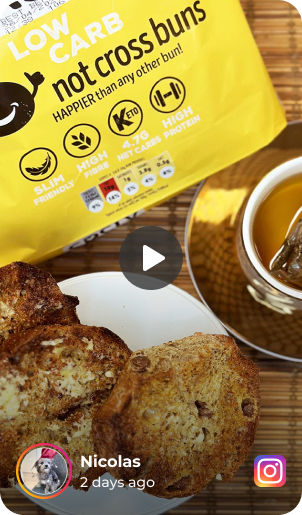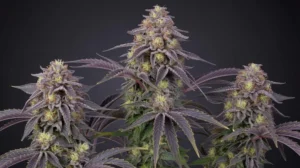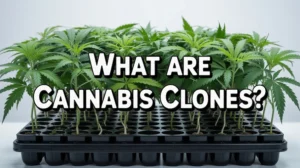The Ultimate Guide to Spectacular Pheno Hunting and Cloning: 10 Quick Tips

Cannabis cultivation is an intricate and delicate art, demanding patience, knowledge, and a keen eye for detail. This all-inclusive guide will explore the fascinating world of pheno hunting and cloning, providing invaluable insights and practical advice to help you become a master cannabis grower. We will also address the unique nature of cannabis phenotypes and why they are crucial in the cultivation process. So, let’s embark on this exciting adventure and uncover the secrets of successful cannabis cultivation!
#1 Understanding Cannabis Phenotypes
- What is a Phenotype? A phenotype refers to a plant’s observable traits or characteristics, resulting from the interaction of its genotype (genetic makeup) and the environment. In cannabis cultivation, phenotypes represent distinct variations in plant appearance, growth patterns, flavors, aromas, and potency.
- Why are Phenotypes Important? Phenotypes play a vital role in determining the overall quality, yield, and unique characteristics of cannabis plants. Understanding and selecting the best phenotypes can help growers optimize their cultivation process, resulting in a better final product.
- The Unpredictability of Cannabis Seeds Unlike seeds of other plants, such as corn or green peppers, cannabis seeds can produce plants with significant variations in phenotypes, even when originating from the same parents. This genetic diversity makes pheno hunting essential in cannabis cultivation.
#2 How to Pheno Hunt: The Fundamentals
- Seed Selection The first step in any pheno hunt is choosing the right seeds. Opt for seeds from reputable breeders and stable strains to ensure a smoother pheno-hunting experience. SeedsHereNow.com is a top seed bank in the United States, offering an extensive range of high-quality cannabis seeds.
- Environment and Growing Conditions Consistent environmental conditions are essential for accurately comparing different phenotypes. Maintain a controlled environment with stable temperature, humidity, and light.
#3 Identifying Exceptional Phenotypes
- Key Traits to Look Out For When pheno hunting, search for plant traits such as growth patterns, yield, potency, and resistance to pests and diseases. Also, pay close attention to the more subtle characteristics like aroma and flavor profiles.
- The Magic of Aroma and Flavor In the world of cannabis, flavor, and aroma are crucial factors that can heavily influence the overall quality of the final product. Take note of these sensory aspects when pheno hunting to ensure you select the most desirable phenotypes.
#4 The Pheno Hunting Process: From Seed to Harvest
- Germination and Seedling Stage: Begin your pheno hunt by germinating your seeds and closely monitoring their growth during the seedling stage. Look for strong and vigorous seedlings to move on to the next stage.
2. Vegetative Stage: As the plants enter the vegetative stage, continue to observe their growth patterns, branching structure, and overall health. Eliminate any weak or undesirable plants at this point.
3. Flowering Stage: The flowering stage is crucial for determining the final product. Assess the plants’ bud structure, trichome production, and aroma. This stage is also the best time to determine the plants’ sex and remove any male plants if needed.
4. Harvest and Curing: After harvesting and curing your plants, evaluate their final yield, potency, and overall quality. Choose the plants with the most desirable traits and keep them as your “keepers” for future cultivation.
#5 The Art of Cloning in Cannabis Cultivation
Why Clone?Cloning is a technique used to create genetically identical copies of a cannabis plant by taking cuttings from a “mother” plant and nurturing them to develop roots and grow into new plants. Cloning is advantageous as it allows growers to replicate the desirable traits of a particular plant without the need for seeds, ensuring a consistent final product.
#6 Cloning and Pheno Hunting: The Perfect Duo
- Preserving the Best Phenotypes Combining cloning with pheno hunting allows you to preserve and propagate the most exceptional phenotypes, leading to consistent and high-quality cannabis strains tailored to your preferences. This synergy between pheno hunting and cloning helps refine your cannabis strains and optimize your cultivation process.
#7 Selecting the Ideal Substrate for Clones
- Rockwool: Rockwool is a popular choice for cloning due to its excellent water retention and air permeability properties. It provides a stable and sterile environment for root development.
- Coco Coir: Coco coir is an eco-friendly, renewable substrate that offers outstanding water retention and aeration. It’s a natural, biodegradable option that promotes strong root growth in clones.
- Peat Pellets: Peat pellets are compressed peat moss that expands when soaked in water. They provide a soft, moist, and well-aerated environment for root development.
- Aeroponic Cloners: Aeroponic cloning systems use a nutrient-rich mist to provide an oxygen-rich environment for root development. They can lead to faster rooting and higher success rates.
#8 Pheno Hunting with Clones: Is It Possible?
Pheno hunting with clones is indeed possible and can be highly beneficial when working with new strains or refining existing ones. Starting with a diverse set of clones, pheno hunting can help identify and propagate the best performers, ensuring a consistent and high-quality final product.
#9 Where to Acquire Quality Clones
Obtaining top-notch clones is essential for a successful pheno hunt. Here are some suggestions on where to find them:
- Local Dispensaries Some medical and recreational dispensaries sell cannabis clones. Check with your local dispensaries to see if they offer clones for sale.
- Cannabis Cultivation Clubs or Collectives Joining a local cannabis cultivation club or collective can connect you with other growers who may have clones available for exchange or purchase.
- Online Forums and Communities Online cannabis forums and communities can be valuable resources for finding clones. Engage with members and inquire about clones or cuttings from their plants.
- Friends and Fellow Growers Networking with friends and fellow growers can lead to opportunities to acquire clones or cuttings from their plants.
Always verify the legality of acquiring and growing cannabis clones in your area before proceeding.
#10 Conclusion: Mastering Cannabis Cultivation Through Pheno Hunting and Cloning
By understanding and embracing the world of pheno hunting and cloning, you can elevate your cannabis cultivation skills and consistently produce top-quality strains tailored to your preferences. Follow the tips and best practices outlined in this comprehensive guide, and you’ll be well-equipped to embark on your pheno-hunting and cloning journey. Keep learning, stay curious, and watch your cannabis garden thrive!
Extra Credit !! Seeds Here Now Bonus Content
Concerns When Acquiring Clones: H.L.V.D. and Other Risks
Finally, when acquiring clones, there are a few potential risks to consider. One concern is the transmission of diseases or pests, which can lead to various problems in your cannabis garden. The most significant issue is the Hop Latent Viroid (H.L.V.D.), a destructive plant pathogen that can severely impact your plants’ health and yield.
- Hop Latent Viroid (H.L.V.D.) H.L.V.D. is a viroid that affects cannabis plants, causing symptoms such as stunted growth, reduced yield, and poor overall plant health. It can spread through contact between plants, contaminated tools, or even air. Unfortunately, some infected plants may not show visible symptoms, making identifying and controlling the spread of H.L.V.D. difficult.
- H.L.V.D. Prevention: Risk Mitigation for Cloning Plants As plant cloning continues to gain popularity among horticulturists, there is an ever-increasing need for risk mitigation strategies to protect these valuable specimens. One prominent risk that plagues the plant cloning community is Hop Latent Viroid (H.L.V.D.), among other diseases and pests. This article explores strategies to prevent H.L.V.D. and other risks when acquiring clones, ensuring a healthy and thriving garden.
-
Initial Inspection
Before introducing clones into your garden, careful scrutiny is of utmost importance. Inspecting the clones for signs of diseases, pests, or general health issues is vital. Symptoms may include yellowing leaves, curling, or spots on the plant body. Other signs could be a noticeable loss of vigor, reduced growth rate, or lower yields. Choosing healthy-looking clones and rejecting any specimen showing signs of disease or pest infestation is crucial.
-
Quarantine New Clones
Once the clones have been selected, they should not be introduced into your main garden immediately. The clones should first be placed in a separate area for a quarantine period of at least two weeks. This time allows you to continue monitoring the clones’ health, ensuring that no latent diseases or pests become apparent. This preventative measure will help protect your plant population by avoiding the potential spread of diseases or pests.
-
Practice Good Hygiene
The importance of maintaining a clean and sanitary garden environment cannot be overstated. Your garden is a living ecosystem; like all ecosystems, it requires balance. That balance can be disrupted by introducing diseases and pests, which can be inadvertently spread by poor hygiene practices.
Ensure that all your tools and equipment are cleaned and disinfected regularly. Bacteria, fungi, and pests can easily adhere to your tools, making them vehicles for transmission. It’s also good practice to wash your hands before handling clones and between different plant varieties. This simple act can greatly reduce the risk of cross-contamination.
By being cautious and following these guidelines, you can significantly reduce the risk of introducing H.L.V.D. or other problems into your cannabis garden, ensuring a healthy and thriving cultivation experience.
Jb @the_real_james_bean
The Genesis of SeedsHereNow.com
In the heart of Kenmore, Washington, a visionary named James Bean planted the seeds of revolution in 2010. His ambition? To create the preeminent seed bank in the United States. His vehicle? SeedsHereNow.com. James’ fervor for homegrown cultivation and hobby growers was the spark that ignited this venture, earning him esteem as an industrious and self-effacing force in the sector.
The Perseverance of a Passionate Advocate
Fast-forward to the present day, and James Bean remains as dedicated as ever to his founding mission. His enduring goal is to empower hobby growers and reinforce the homegrown movement by offering an unparalleled assortment of top-tier seeds coupled with stellar customer service. His relentless passion and tenacity have solidified SeedsHereNow.com’s status as the primary port of call for both collectors and cultivators seeking the crème de la crème of cannabis seeds in the USA.
A Vibrant Collection of Cannabis Strains
In its 13-year journey, SeedsHereNow.com has blossomed into a cornucopia of cannabis strains. From the classics to the contemporaries, James’ expertly curated catalog encompasses over four thousand unique strains from more than 70 distinguished breeders. With an impressive roster of 1500 different cultivars at his disposal, James retains a firm grasp on the ever-evolving world of cannabis strains.
Whether you are a seasoned cultivator or a novice grower, SeedsHereNow.com, under James Bean’s meticulous stewardship, is your gateway to an expansive universe of cannabis cultivation.
Suggested Articles
;)
;)
;)




 16 Jan 2026
16 Jan 2026  7 min read
7 min read


 May 03, 2023
May 03, 2023 


RESPONSES (0)
No responses yet. Be the first to respond!